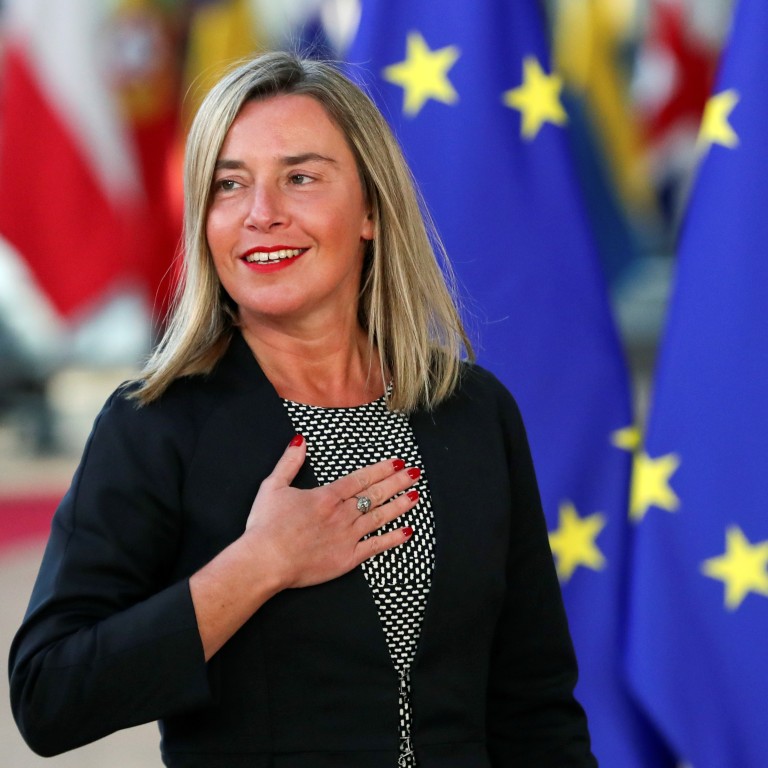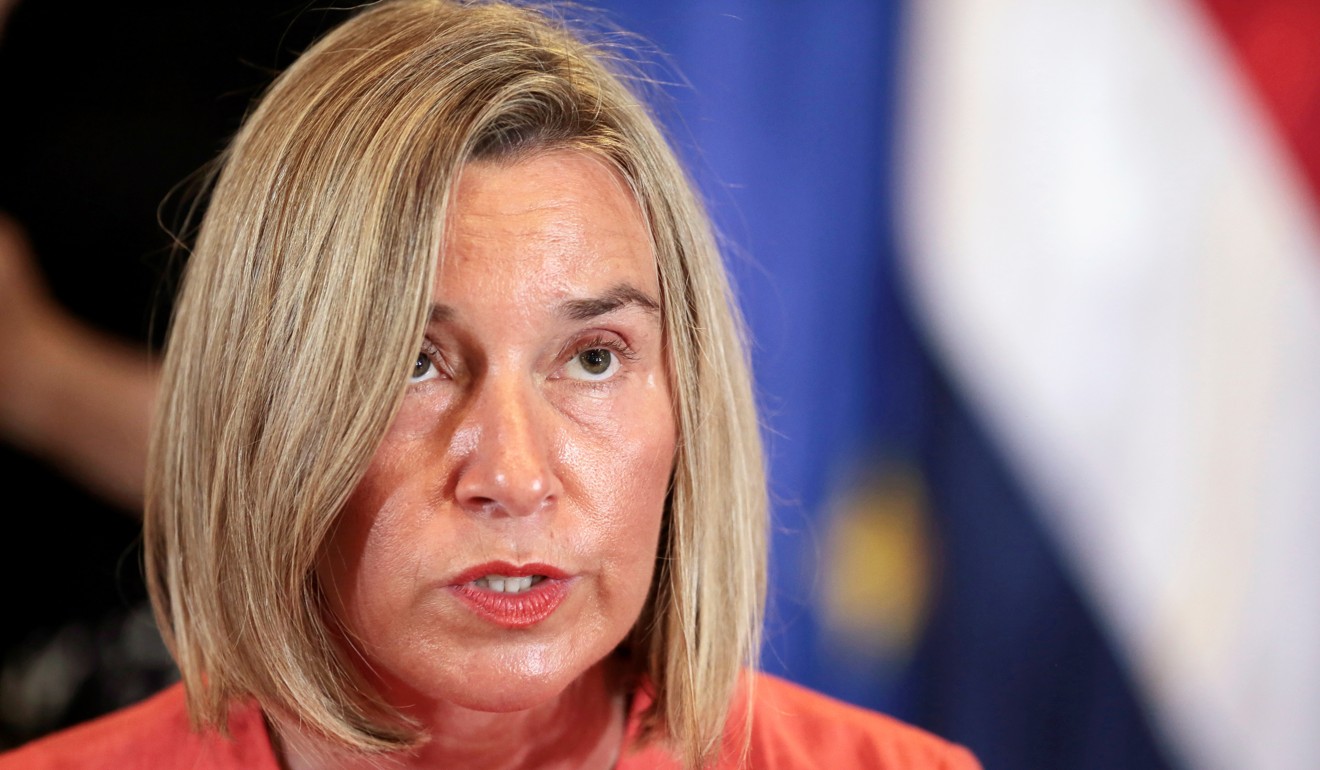
European Union says erosion of civil and political rights in Hong Kong in 2018 earned ‘unprecedented’ concern from foreign policy chief Federica Mogherini
- Federica Mogherini warned of threats to journalists and narrowing political space
- Hong Kong government and Beijing tell EU not to interfere in internal matters
The European Union has said the erosion of civil and political rights in Hong Kong in 2018 earned an “unprecedented” level of concern from the body’s top foreign affairs official, according to its annual report.
Issued on Wednesday by the European Commission and Federica Mogherini, the high representative for foreign affairs and security policy, the report said freedom of expression was under threat in Hong Kong, especially in regard to sensitive political topics.
“The spokesperson issued three statements in less than a year, which was unprecedented.”

The three statements were issued in January, September and October.
The first statement concerned the government’s decision to bar democracy activist Agnes Chow Ting from entering a Legislative Council by-election. The other two were objections to the ban on the pro-independence Hong Kong National Party (HKNP), and the city’s refusal to renew a visa for Victor Mallet, a British journalist.
Even so, the report said Hong Kong’s rule of law generally prevailed and the judiciary continued to demonstrate its independence and a consistent adherence to due process.
The report said the space for political opposition in Hong Kong had narrowed, citing examples of candidates being barred from elections because of their political affiliation or views, including Lau Siu-lai, a former lawmaker, and current Legco member Eddie Chu Hoi-dick.
The ban on the HKNP, according to the report, showed the government’s new zero-tolerance policy towards any mention of self-determination or independence – a policy said to be encouraged by Beijing.
“The decision will, in all likelihood, have a wider chilling effect on freedom of expression and association and on political activity,” the report read.
European Union voices concern over Hong Kong’s plan to allow extraditions to mainland China
“Restricting the work of journalists, including that of foreign journalists, would gravely damage Hong Kong’s reputation and its credentials as a financial and business hub,” it read.
Hong Kong’s high degree of autonomy is part of the promises made under the “one country, two systems” principle, which has been adopted by Beijing to govern the city since it was handed over by Britain in 1997. The principle and its governance mode are set to expire in 2047.
But the report said erosion of one country, two systems increased last year.
“It seems that after the 19th Congress of the Chinese Communist Party [in 2017], a new understanding emerged of the ‘one country, two systems’ principle.”
The report continued: “The notions of ‘comprehensive jurisdiction’, and ‘shared governance’, together with a greater focus on red lines with regard to national security and territorial integrity, make certain parts of Hong Kong society worry about the future.”
EU concerned over ‘gradual erosion’ of Hong Kong’s autonomy
In response to the report, the local government and Beijing’s commissioner of foreign affairs in the city said the EU should not interfere in the internal affairs of Hong Kong or China.
The Hong Kong government said its decisions were made in accordance with the one country, two systems principle and the Basic Law, the city’s mini-constitution.
“Relevant international human rights conventions and court cases have clearly pointed out that freedom of speech is not absolute,” the Hong Kong government’s spokesman said.
The spokesman for Beijing’s commissioner said promoting independence for Hong Kong was beyond the bottom line of freedom of speech and association. He said the notion of Hong Kong’s independence would not be tolerated.

